How the mixing of football, cultural relations and creative industries offers a powerful platform for sports diplomacy
Fusing football with cultural relations is increasingly being creatively deployed by nations and football actors as a tool for international engagement. This article explores this phenomenon.
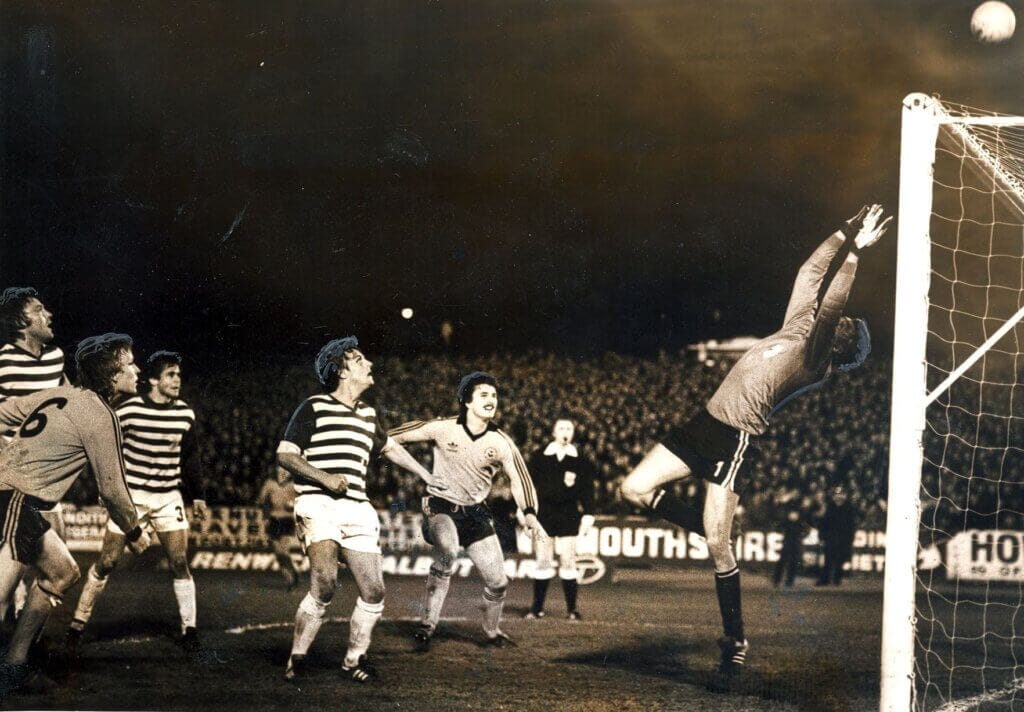
Introduction: Football and culture
Throughout the modern evolution of football, many have linked the beautiful game with broader cultural activities such as music, arts, language, poetry, creative media, and history. These connections can be seen as a form of organic football diplomacy and are increasingly associated with concepts like nation branding, soft power, and cultural diplomacy. This demonstrates the influence and flexibility of football as an international and cultural engagement tool. For those unfamiliar with these interconnected concepts, my previous article, 'Football Diplomacy and Nation Branding: Decoding the Dynamic Relationship,' explains them and explores how they are combined with sports as a tool to represent and promote nations globally.
To offer a simple example of football and broader culture’s links, numerous commentators have discussed how football has served as a means of national and local expression and pride. The beautiful game often reflects the distinct identity and heritage of a city, region, or nation, with teams integrating elements of their indigenous culture into their playing style, traditions, and rituals. Brazil's passionate, artistic, samba-infused playing style or the disciplined and tactical approach of Germany in the 1970s, 80s, and 90s are just a few examples that broadly reflect their respective societies’ cultural values and characteristics, adding a layer of intrigue and fascination to football culture for global audiences.
During my recent visit to the enchanting city of Bilbao in the Basque Country, also known as Euskal Herria or Euskadi in the Basque language (Euskara), I witnessed the powerful fusion of football and culture up close. The friendly and passionate local people, world-class gastronomy (pintxos, txuletón or txakoli, for example), music, ancient language, poetry, stunning landscapes, and architecture, combined with iconic Basque football clubs, make it an unforgettable destination for sports and culture lovers worldwide.
One of the highlights of my trip was experiencing the passion for Basque football through a visit to the iconic San Mamés (Basque: Santimami) stadium to watch Athletic Club de Bilbao (Basque: Bilboko Athletic Kluba) play against the Galician club Celta Vigo in Spain's La Liga. The home team's 3-1 victory certainly added to the experience, with the stadium itself acting as a wonderful and welcoming cathedral for football with a superb atmosphere.
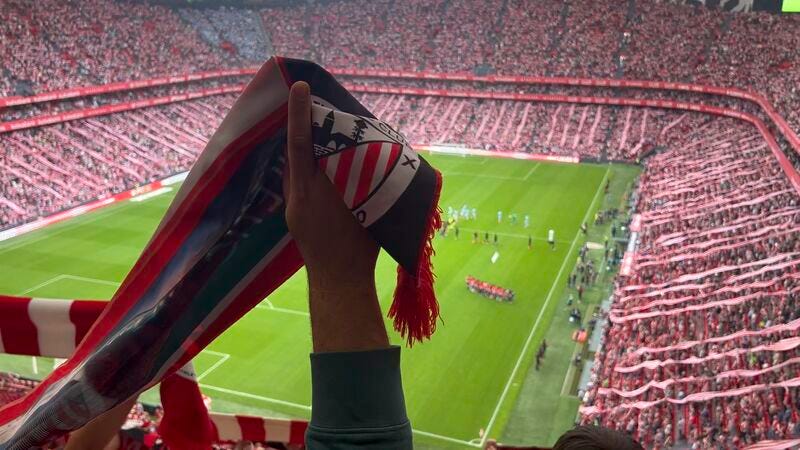
Football plays a crucial role in sports diplomacy and nation branding for the Basque Country, showcasing its unique identity and traditions to the world. The sport's ability to unite people, cities and nations, regardless of their differences, and showcase their cultures to the world is truly remarkable. I am grateful to have witnessed this firsthand in Bilbao, and experiences like these make us feel connected and united through the power of football’s intersection with culture.
If you are interested in learning more about Athletic Club de Bilbao's unique cultural value proposition, I highly recommend reading Chris Evans' book ‘Los Leones’. This groundbreaking English-language study of the club provides historical, political, and social context, explaining what makes Athletic’s place in world football culture so special.
Modern football diplomacy and cultural relations
Modern football diplomacy has evolved into a more deliberate and strategic form of sports diplomacy. It involves a wide range of state and non-state actors collaborating with partners from across the international football landscape. These include stakeholders such as governing bodies, national and regional football federations, clubs, players, fans, sponsors, business, the sports media, and related creative industries. A key aspect of modern football diplomacy is how these actors can collaborate and synergise their efforts to leverage football's connection to broader cultural pursuits.
The following examples are far from exhaustive and are intended to provide readers with only an introductory example of how actors might operate in this space.
The football club as a diplomatic actor - The case of Newport County
Football clubs worldwide increasingly use creative media and designs for their team shirts and merchandise to showcase their heritage, cultural identity, language, and unique aspects of their city or region.
A compelling example is my hometown club, Newport County AFC, which plays in England’s League 2 but proudly represents the nation of Wales. Newport is located in South Wales, just 12 miles east of the capital, Cardiff. The city has a proud industrial heritage as a major seaport and steel-making area. The wider metro area has strong links to the Arthurian legend, boasts world-class Roman remains, and a lush green hinterland.
One of the club’s official kits for this season incorporates a design with the red, white, and green colours of Cymru (Wales national team), a Welsh Dragon flag above team squad numbers, and an indented Welsh dragon graphic throughout the design. The shirt aims to showcase the club’s cultural roots, including the Welsh language and national brand, to the world. This is similar to the approach taken by Athletic Bilbao, who also design team shirts that showcase the club’s Basque heritage and identity and feature the nation’s ikurriña official flag.
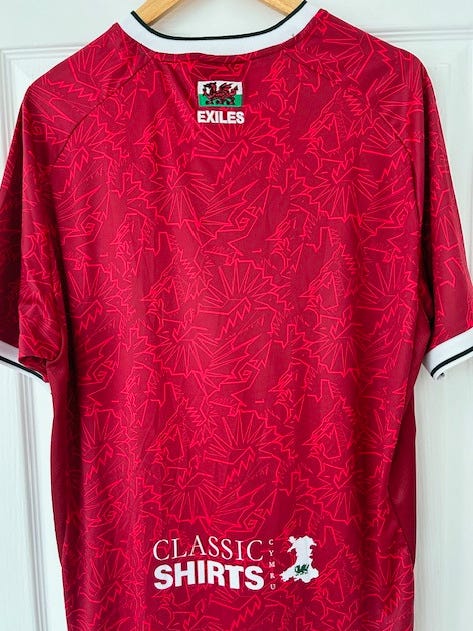
In more recent years, Newport County has been further innovating in the realm of international cultural football relations and engagement. For example, in 2021, the club created, wore, and promoted a limited-edition shirt produced by Hummel to honour its warm and enduring ties with the German club Carl Zeiss Jena, who are based in the city of Jena in the central-eastern Thuringia region of the country.
Both clubs share strong links with their local industrial heritage, creating a sense of mutual kinship. The core relationship between the clubs dates back to early 1981 when they met in the quarter-final of the now-defunct European Cup Winners' Cup competition. This was a significant moment in their histories, and both clubs have experienced a relative decline in their footballing fortunes since then.
Football is not just about competition; it's also about shared experiences. The 1981 Cup Winners’ Cup quarter-final match between Newport County and Carl Zeiss Jena exemplifies how healthy competition can bring together unlikely rivals and build bridges that allow people to cross divides, noting the fixture occurred before the fall of the Berlin Wall. Close ties still exist between supporter groups from both clubs, leading to broader cultural connections between Jena, Germany, and Newport, Wales.
In 2013, Carl Zeiss Jena invited Newport County to Germany to play a friendly as part of the club’s 110th-anniversary celebrations. The game ended appropriately at 2-2, reflecting both the original scoreline from 1981 and a spirit of friendship. The following year, Newport reciprocated, inviting the German club to play a pre-season friendly in Wales.
This case study demonstrates the strong connections between football, diplomacy, creative industries and cultural relations. It also emphasises that this practice is not limited to major clubs in Europe's top leagues. In some cases, unique, ‘boutique’ relationships like the County-Jena story can have a more significant impact as they tend to create stronger person-to-person connections on a more interpersonal, emotive and manageable scale. This helps to reach diverse groups of key stakeholders with a passionate, vested interest in their local municipalities, which would be much more challenging to achieve in larger cities.
The marketing team of Newport County, in partnership with the cutting-edge creative football fashion agency Lover’s FC, led by director Neal Heard, has ambitious future plans connecting the areas of football diplomacy, cultural relations and creative industries. I recommend following this club if you have an active interest in these aspects of football (diplomacy).
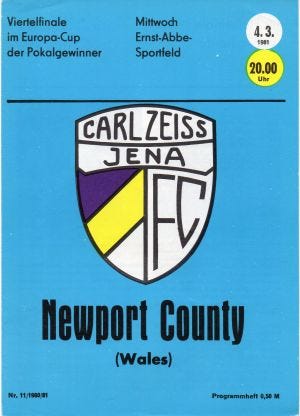
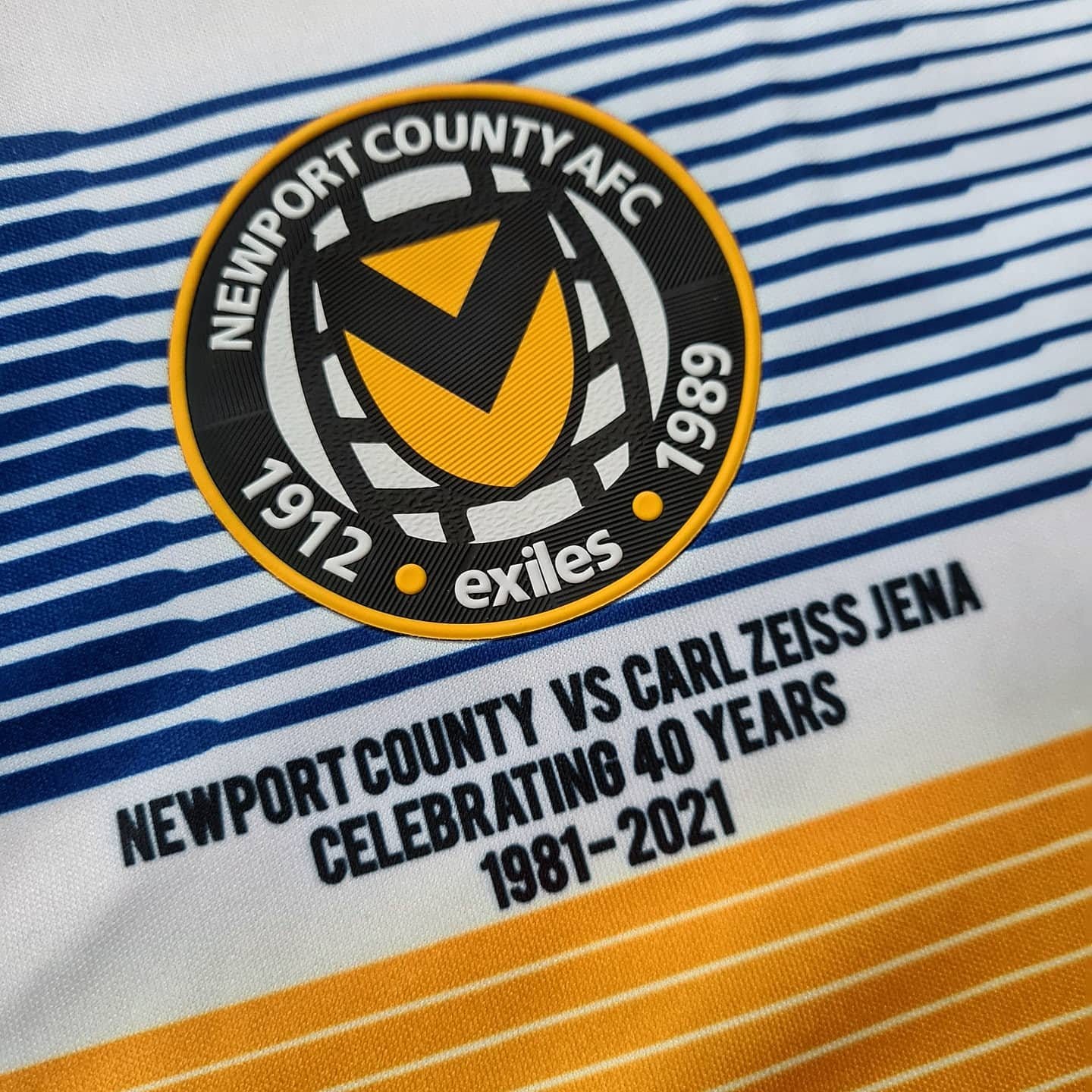
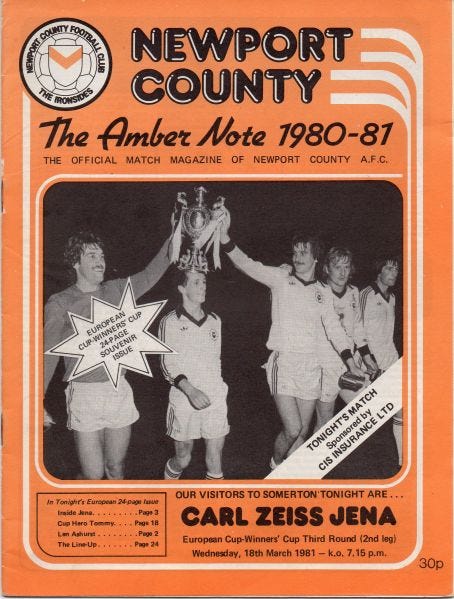
Music, poetry, other cultural activities and football diplomacy
The fusion of music, poetry, and other cultural activities with football consistently demonstrates its ability to unite people worldwide. Most notably, football and music have the potential to connect individuals from diverse cultures and backgrounds, whether through the passionate chants or songs of fans in stadiums or the distinctive dance celebrations by players. Music contributes to a sense of togetherness and enthusiasm in the global football experience.
Music is also a reflection of a country's cultural identity. When combined with football or other sports, it becomes a powerful platform to display a nation's heritage and traditions. National anthems, pre-match performances, and halftime shows provide a platform to showcase diverse music genres, offering insights into the soul of a nation. A previous article on Sports Diplomacy Unwrapped provided an example of how the singing of the Welsh national anthem, Hen Wlad Fy Nhadau (Land of My Fathers), at football matches has helped Wales-Cymru successfully showcase its language and cultural nationhood on the world stage
In a similar vein, iconic renditions of popular culture anthems like Liverpool FC’s (England) 'You’ll Never Walk Alone' (originally by Gerry and the Pacemakers) or Hibernian FC’s (Scotland) 'Sunshine on Leith' (originally by the Proclaimers) also demonstrate this phenomenon in action. Renditions of both songs have gone viral online as recordings of fans singing at stadiums, in the streets, or in bars are enjoyed by global audiences.
Similarly, the Basque football derby between Athletic Club de Bilbao and Real Sociedad of the city of Donostia-San Sebastian is deeply rooted in Basque cultural and historical context. Bertsolaritza poetry, a traditional form of improvised Basque verse, plays a significant role in showcasing the intense friendly rivalry between the two most prominent Basque football clubs and cities. This poetry serves as a means of expressing the passion, pride in Basque culture, and the emotional warmth surrounding this derby in the regions of Bizkaia (Bilbao and surrounds) and Gipuzkoa (Donostia-San Sebastian and surrounds).
The verses of Bertsolaritza poetry capture the fervor of the Basque derby, encapsulating the historical significance of the rivalry and the deep-seated emotions of the supporters. The improvised nature of this oral tradition allows for spontaneous and vivid storytelling, enabling poets to evoke the spirit of the derby through their words.
During the build-up to the Basque derby, Bertosolari poets may craft verses that celebrate the storied history of the clubs, honour legendary players, and emphasize the communal pride associated with the match. These poetic performances serve as a form of cultural expression and contribute to the collective experience of the derby, reinforcing its significance beyond the realm of sports and the Basque nation and help to showcase the fixture to international audiences
As these examples indicate, in the digital age, music, poetry, and football content are easily accessible worldwide through social media and online platforms. This accessibility enables fans to connect and engage with each other across cultures, fostering a sense of global community and breaking down barriers. It promotes mutual respect and appreciation.
In a nutshell, the combination of music, poetry, and football serves as a potent tool for football diplomacy and international engagement. By leveraging the universal appeal of music and poetry and the unifying nature of football, nations, organisations, and individuals can harness the collective energy of these cultural forces to promote understanding, celebrate diversity, and inspire positive change on a global scale.
For those interested in further exploring deeper connections between football (diplomacy) and broader cultural activities such as music, arts, language, poetry, creative media, and history, stay tuned for an upcoming book chapter that I co-authored with Stuart Murray. The chapter, titled 'The Great Game of Football Diplomacy: Australia versus Wales,' will be featured in a new book called 'The Geopolitical Economy of Football - Where Power Meets Politics and Business' (November 2024)’. The Welsh case study in this chapter offers an excellent example of a nation (Welsh Government) partnering with the Football Association of Wales and a wide range of state, non-state, and civil society actors to fuse football (diplomacy) with all forms of cultural activity. The chapter also compares and contrasts Welsh football diplomacy with Australia’s dynamic approach.



I loved it!
It's so nice to have found someone with the same passion for such a niche topic.
I'm looking forward to reading everything you'll post.
Thanks Gavin, fascinating article.